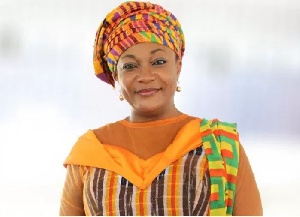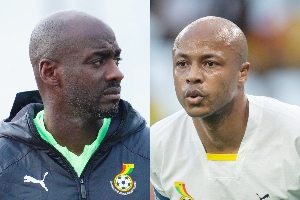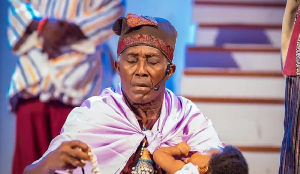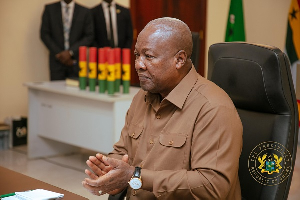A former Minister of Gender, Children and Social Protection, Dr. Otiko Afisa Djaba, has described the passage of the Gender Equity Bill (formerly Affirmative Action Bill) as a historic achievement for the country.
Speaking on GhanaWeb TV’s Election Desk, Dr. Afisa Djaba stated that the Gender Equity Bill has expanded opportunities for women, allowing them greater freedom and the ability to make significant impact in the decision-making process of the country.
According to her, the news of the Gender Equity Bill’s passage greatly excited her, as it represents a significant achievement.
“It is historic. I was overwhelmed with joy; I was elated so I danced to the song ‘Defe Defe’. The promise of our ancestors for democracy and for independence for all Ghanaians, it didn’t see the independence of women but with the passage of the Affirmative Action bill, we see the potential of us women in Ghana and our freedom. The bill in itself was something that should have happened a long time ago but we say better late than never,” she said.
Emphasising the importance and roles of women in advancing the national agenda, Dr Afisa Djaba advocated for the collective efforts of both men and women to achieve progress and inclusive development.
She is, however, optimistic that the bill will boost women’s leadership in the country.
“The empowerment of women is a national agenda because it is a woman that nurtures all the children and when she is empowered, the society will be empowered. In terms of representation and making sure that all levels of development, social, political, economic, and educational, the numbers in terms of parity is going to be progressive. For this current bill, it is not going to be something that will happen at once, like this year it will not happen.
“From now in 2024 until 2026, we are expecting to get about 30%. Then from 2026 to 2028, it will get to 35% and then we get to parity 50/50 in 2030. That is 6 years, it seems almost impossible because for 67 years you have not been able to do this and you think that it can be done in 6 years. It will require a lot of collective and united effort from both men and women,” she disclosed.
MAG/AE
General News of Tuesday, 10 September 2024
Source: www.ghanaweb.com





![Kwabena Adu-Boahene [Left] and Deputy Attorney General Justice Srem Sai [Right] Kwabena Adu-Boahene [Left] and Deputy Attorney General Justice Srem Sai [Right]](https://cdn.ghanaweb.com/imagelib/pics/255/25540310.295.jpg)







